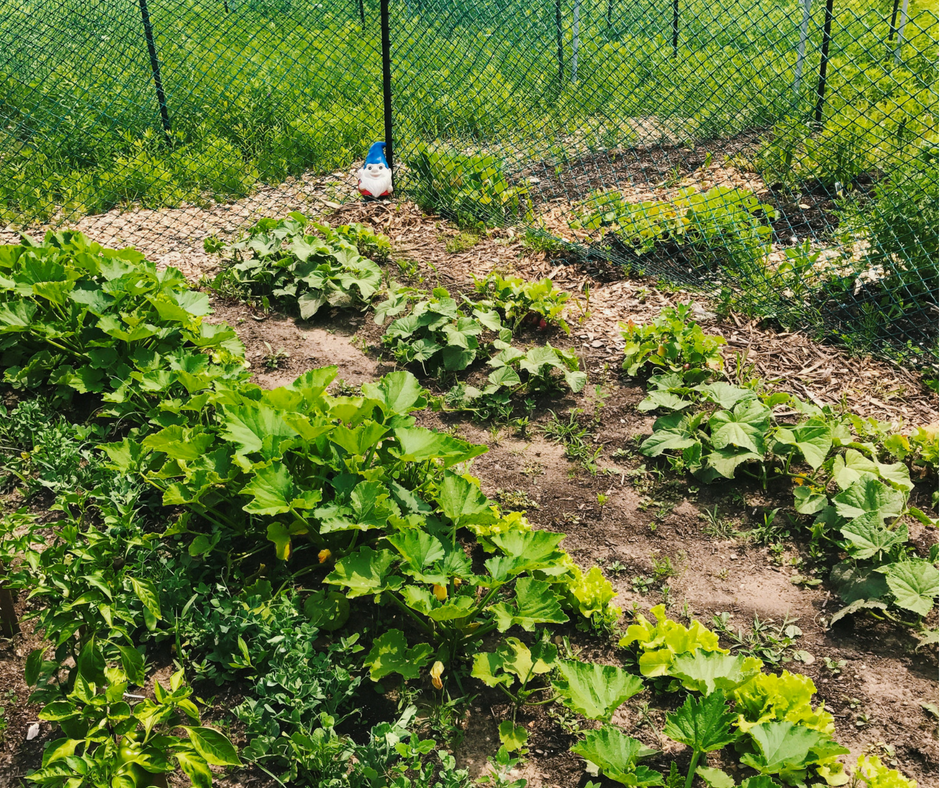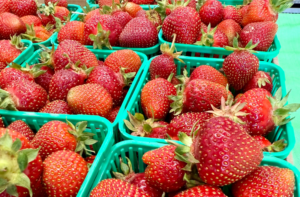Did you know that there is a Community Compost for all West 5 residents located in the Community Garden? Composting can remove 20-50% from your household waste stream, reducing the burden on landfills while replenishing your lawn, trees, houseplants, or garden for free.
For your soil, there is no more powerful ingredient than compost. Whether you till it into your garden beds or use it as mulch around shrubs and trees, it is considered essential to organic and sustainable food production. Once it’s in the soil, finished compost—or humus—increases fertility, adds both micro- and macronutrients, buffers pH, prevents diseases, breaks down toxins, and improves soil structure.
But even if you don’t have a garden, composting is still a vitally important practice. We humans take far more carbon, minerals and organic matter from the soil than we put back. But without organic matter, soil becomes dead, inert mineral dust that won’t grow anything but weeds. The basics of composting are simple. Pretty much anything that once lived or was made from a living thing can be composted. As long as an item contains all natural components, it will decay, decompose and break down, returning it’s nutrients to the soil.
30 Items You Can Compost
- Fruit and vegetable scraps
- Egg shells (crushed)
- Coffee grounds
- Coffee filters
- Loose leaf tea (do not put tea bags in compost unless made of hemp, organic fibres)
- Spoiled soy/rice/almond/coconut milk
- The crumbs you sweep off of the counters and floors
- Cooked pasta or rice
- Stale bread, pitas, or tortillas, chips
- Spoiled pasta sauce or tomato paste
- Crumbs from the bottom of snack food packaging
- Stale crackers or stale cereal
- Nut shells (except for walnut shells, which are toxic to plants)
- Spoiled tofu and tempeh
- Seaweed, kelp or nori
- Unpopped, burnt popcorn kernels
- Old herbs and spices
- Stale pretzels
- Stale candy (crushed or chopped)
- Stale protein or “energy” bars
- Pizza crusts
- Old oatmeal
- Peanut shells
- Stale pumpkin, sunflower or sesame seeds (chopped up so they can’t sprout)
- Avocado pits (chopped up so they don’t sprout)
- Moldy cheese
- Old jelly, jam, or preserves
- Toothpicks, bamboo skewers (break them into pieces)
- Grass clipping
- Dead autumn leaves
10 Items You Can’t Compost
- Dog & cat feces or litter
- Citrus Peels and Onions
- Fish & Meat Scraps
- Large branches
- Synthetic Fertilizer
- Sticky Labels on Fruit & Vegetables
- Sawdust from Treated Wood
- Cooking oil. Smells like food to animal and insect visitors. It can also upset the compost’s moisture balance.
- Diseased plants. Trash them, instead. You don’t want to transfer fungal or bacterial problems to whatever ends up growing in your finished compost.
- Stubborn garden plants. Dandelions, ivy and kudzu are examples of plants or weeds which will probably regard your compost heap as a great place to grow, rather than decompose.













